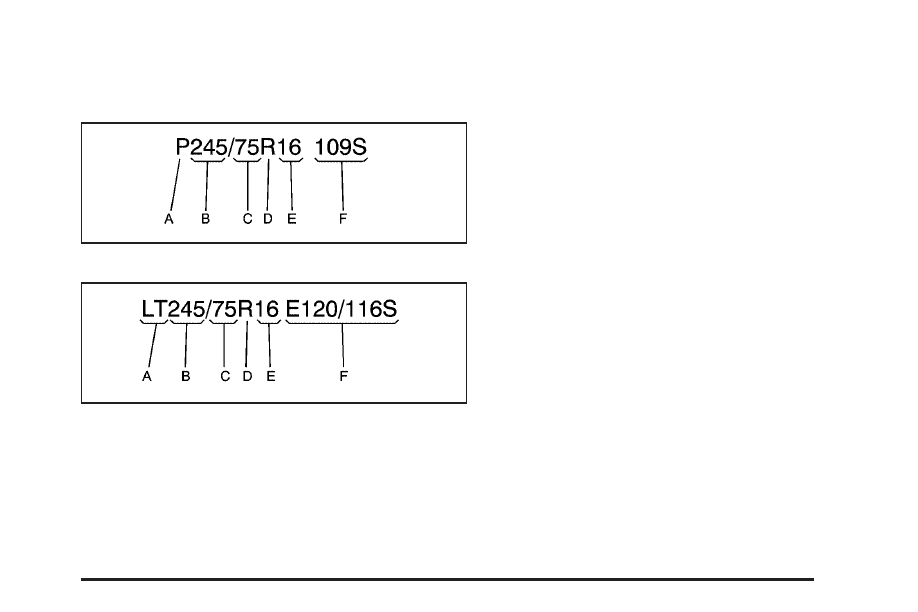Tire size – Saab 2006 9-7X User Manual
Page 341

Tire Size
The following examples show the different parts of a
tire size.
(A) Passenger (P-Metric) Tire: The United States
version of a metric tire sizing system. The letter P as the
first character in the tire size means a passenger vehicle
tire engineered to standards set by the U.S. Tire and Rim
Association.
(A) Light Truck (LT-Metric) Tire: The United States
version of a metric tire sizing system. The letters LT as
the first two characters in the tire size means a light
truck tire engineered to standards set by the U.S. Tire
and Rim Association.
(B) Tire Width: The three-digit number indicates the
tire section width in millimeters from sidewall to sidewall.
(C) Aspect Ratio: A two-digit number that indicates the
tire height-to-width measurements. For example, if the
tire size aspect ratio is 75, as shown in item C of the light
truck (LT-Metric) tire illustration, it would mean that the
tire’s sidewall is 75% as high as it is wide.
(D) Construction Code: A letter code is used to
indicate the type of ply construction in the tire. The
letter R means radial ply construction; the letter D means
diagonal or bias ply construction; and the letter B means
belted-bias ply construction.
(E) Rim Diameter: Diameter of the wheel in inches.
(F) Service Description: The service description
indicates the load range and speed rating of a tire.
The load index can range from 1 to 279. Speed
ratings range from A to Z.
Passenger (P-Metric) Tire
Light Truck (LT-Metric) Tire
5-59